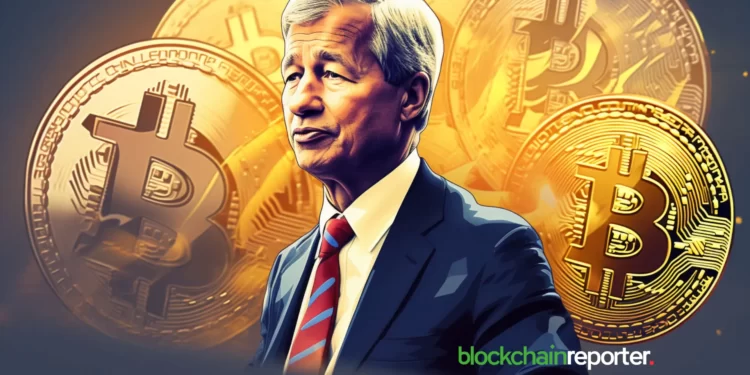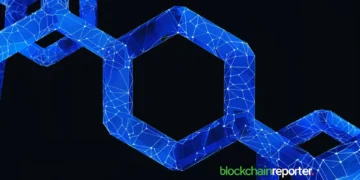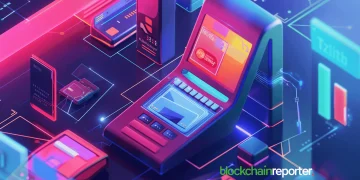JPMorgan Chase CEO Jamie Dimon’s comments concerning Bitcoin have sparked discussions in the crypto community again. In a statement during a new interview, Dimon, who is well-known as a crypto critic, described the market frontrunner as a “public decentralized Ponzi scheme”. However, he has shown leniency in his stance about ‘Blockchain’. He labelled blockchain as ‘real’. Moreover, he said they (as a firm) have been talking about blockchain for over 10 years.
Jamie Dimon’s Skepticism and Blockchain Appreciation
Jamie Dimon has continued to have reservations about Bitcoin’s underlying value and regulatory supervisions. Other traditional financial players share Dimon’s skepticism Bitcoin, with some equating it to speculative bubbles as tulip mania. However, although skeptical about Bitcoin, Dimon separately acknowledges blockchain, the true technology beneath Bitcoin, as revolutionary.
He genuinely appreciates the technology’s fast and ability to shift transactions and record keeping significantly. JPMorgan Chase under his leadership has been exploring this technology’s capabilities in many sectors, including market transfers and supply chain operations.
The price of cryptocurrencies has fluctuated significantly over the last decade, as prices reached all-time highs only to plummet to unsustainable levels. This swing has raised doubts about the long-term value of cryptocurrencies as investment vehicles.
Bitcoin Skepticism Persists Despite Decade of Market Evolution
Dimon’s attitude to Bitcoin has not altered. He did push for the government’s tightened control to prevent fraud and market manipulation and shield cryptocurrency market consumers. The banker, however, was carefully concerned about a digital asset which was and is very wildly available to retail and institutional investors.
In the end, Dimon’s declaration reveals that the question of the cryptos’ place in the future of finance has not left the agenda. Although Bitcoin and other digital assets took on a more serious cast to the public in the last 10 years, they still do not fall into the zone of their direct activities and at the same time spark controversy in the financial community.























